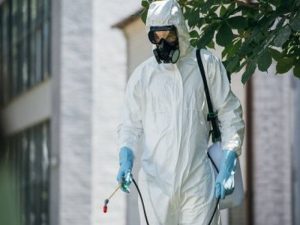
Integrated Pest Management (IPM) is a sustainable, holistic approach to pest control that focuses on prevention and uses a combination of methods to manage pests. It has been gaining popularity in Sydney’s businesses as a more effective and environmentally friendly alternative to traditional pest control methods. Implementing IPM in businesses can not only reduce the use of harmful chemicals but also save costs in the long run.
One of the key components of IPM is prevention. This involves identifying potential entry points for pests, such as cracks and gaps in buildings, and fixing them to prevent pests from entering. Businesses can also implement good sanitation practices, such as proper waste management and regular cleaning routines, which can eliminate potential food sources for pests.
Another important aspect of IPM is monitoring. By regularly inspecting for signs of pest activity, businesses can detect infestations early on and take action before they become widespread. This reduces the need for reactive treatment measures which are often more costly and harmful to the environment.
When it comes to controlling pests through physical means, IPM advocates for non-chemical methods first. For example, installing screens or using air curtains at entry points can keep out flying insects without the need for pesticides. Traps may also be used as an effective alternative to chemical treatments when dealing with specific types of pests.
For those situations where chemical treatments are necessary, IPM encourages targeted application rather than blanket spraying. This means using pesticides only where there is evidence of pest activity rather than treating entire areas unnecessarily. Not only does this save money on chemicals but it also reduces their impact on non-target organisms such as beneficial insects.
IPM also emphasizes the importance of understanding pest behaviour in order to effectively manage them over time.The use of pheromone traps or other monitoring tools can help identify patterns in pest behavior which allows businesses to better target their control efforts.
One key benefit that implementing IPM brings is reduced reliance on toxic chemicals which have been linked to health and environmental issues. By using a combination of methods, businesses can significantly reduce the need for pesticides and, in some cases, eliminate their use altogether.
In addition to being safer for human health and the environment, implementing IPM can also save costs in the long run. Although initial set-up costs may be higher, the proactive approach of IPM reduces the need for expensive reactive treatments down the line. It also avoids potential damage to property that pests can cause if left untreated.
Overall, implementing Integrated Pest Management in Sydney‘s businesses not only benefits individual companies but also contributes to a healthier environment for all. By focusing on prevention and using a combination of techniques tailored to each specific situation, IPM provides a more sustainable and effective approach to pest control that aligns with modern consumer values. Businesses who have adopted IPM have seen significant improvements in their overall pest management strategies and are setting an example for others to follow suit.






